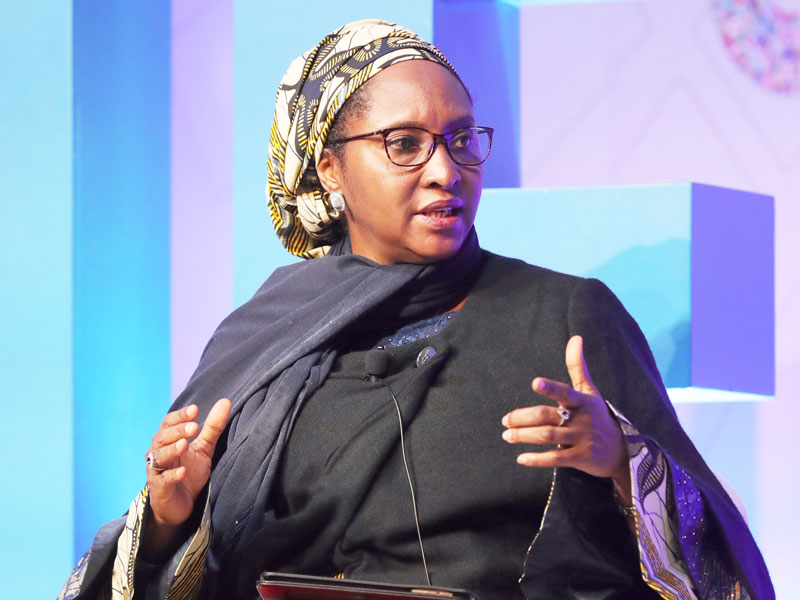Nigeria’s Finance Minister, Dr. Zainab Ahmed has said that it will be safer for the Buhari administration to start removing fuel subsidies gradually from the beginning of the second quarter of 2023.
She stated this during an exclusive interview via Arise TV, while attending the ongoing in Davos, Switzerland on Tuesday, January 17.
According to her, removing the fuel subsidy in phases is the best option. She said:
- “What will be safer is for the current administration to start removing the fuel subsidy at the beginning of the second quarter because it works better if you remove it gradually than all at once. The idea for us in the 2023 budget is that fuel subsidy costs should not exceed that N3.36 trillion, so, whether it is done completely 100% by June or otherwise, it’s the process and the cost that counts.”
Backstory: Ahmed had earlier announced that the Buhari administration had earmarked N3.36 trillion as the amount for fuel subsidy payments in 2023, which will cover six months before the payment regime will come to an end.
Why the fuel subsidy was not stopped prior to this time: Responding to why the fuel subsidy regime was not stopped in June 2022, Ahmed said the decision to extend the date of removal was a collective effort.
- She said the government decided to extend as a result of the lingering impacts of the Covid-19 pandemic and the heightened inflation Nigerians were facing at the time.
She stated further that the removal of the fuel subsidy at that time would have increased the burden on the Nigerian citizens and the president does not want that.
- “The good thing is we hear a consistent message that the fuel subsidy needs to go because it is not serving the majority of Nigerians. Also, some new candidates, running for the 2023 elections are also saying the subsidy regime needs to end,” she said.
Need for revenues: The finance minister noted that Nigeria is in need of revenues to service its debts and she expressed optimism that 2023 will bring about needed revenues.
She highlighted the fact that the country needs to exit the fuel subsidy regime because it is a very significant contributory factor to revenue loss. She said:
- “You can look at it in two ways – the payments made are revenues that would have come to the government but don’t because it is being spent on fuel subsidy, but also where there is not enough revenue to buy the refined petroleum products, we have to borrow to buy the products, so, if we take that out, that is over N3 trillion, it’s a significant relief if we do not incur any more than that number that we projected for 2023.”
Anticipated growth in the oil and gas sector: While speaking, Dr. Ahmed noted that Nigeria’s oil sector contribution which was minimal in 2022, is looking to pick up in 2023.
This is due to the measures the government has taken, as well as a combined effort of security and intelligence agencies, which have resulted in improved production from the oil and gas sector and it looks like the trend will continue.
She said that most of the oil fields that were previously not producing at the levels they are supposed to can now do so at maximum capacity. Also, oil prices in the international market are still at a reasonably high level.
- Ahmed also pointed to the gas sector where the government is working to encourage investments in gas, so there will be new and additional incremental streams that will come from the gas sector, so the country should be able to meet up with revenue targets.
For the record: Ahmed also said that based on reports from the International Monetary Fund (IMF) and the World Bank, there will likely be a global recession in 2023, occasioned by a decline in growth on a general basis. This is because of the following factors:
- The sustained economic impact of the Covid-19 pandemic and the resurgence of the virus in China
- The Russia-Ukraine war is having a global impact on economies.
- The quantitative easing that is being implemented by Central Banks across the world which have resulted in higher interest costs resulting in high inflation rates whereby people’s spending power is weakened across the board.
